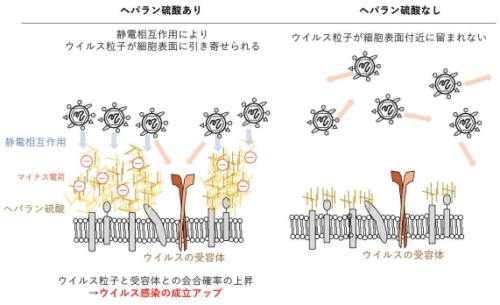人工知能を用いた非侵襲的アプローチにより、糖尿病や炎症性腸疾患などの疾患リスク上昇を明らかにする。 Non-invasive approach uses artificial intelligence to reveal increased risk of diseases such as diabetes and inflammatory bowel disease
2022-07-19 ペンシルベニア州立大学(PennState)
本研究では、マイクロバイオームとメタボロームの両方を測定するデータセットから有用な特徴を学習し、それを用いてマイクロバイオームのみを測定するデータセットのリスク予測精度を大幅に向上させることを提案する。その結果、統計的学習とAIを用いた、腸内マイクロバイオームを用いた非侵襲的なアプローチにより、疾患リスクが上昇した個人を特定できる可能性があることを示した。
研究者らによると、マイクロバイオームとメタボロームを組み合わせることで、より正確に疾患の転帰を予測することができ、疾患メカニズムのより深い理解につながるとのことです。
<関連情報>
- https://www.psu.edu/news/research/story/predictive-model-uses-gut-microbes-forecast-human-diseases-health-outcomes/
- https://www.sciencedirect.com/science/article/pii/S0022283622002856
MB-SupCon: 教師付き対比学習による微生物学的予測モデル MB-SupCon: Microbiome-based Predictive Models via Supervised Contrastive Learning
Sen Yang,Shidan Wang,Yiqing Wang,Ruichen Rong,Jiwoong Kim,Bo Li,Andrew Y.Koh,Guanghua Xiao,Qiwei Li,Dajiang J.Liu,Xiaowei Zhan
Journal of Molecular Biology Available online 28 June 2022
DOI:https://doi.org/10.1016/j.jmb.2022.167693

Highlights
- •A novel supervised contrastive learning framework for general microbiome and metabolomics studies.
- •A general method to improve microbiome-based prediction models.
- •Microbiome embeddings form separatable clusters in lower-dimensional space.
Abstract
Human microbiome consists of trillions of microorganisms. Microbiota can modulate the host physiology through molecule and metabolite interactions. Integrating microbiome and metabolomics data have the potential to predict different diseases more accurately. Yet, most datasets only measure microbiome data but without paired metabolome data. Here, we propose a novel integrative modeling framework, Microbiome-based Supervised Contrastive Learning Framework (MB-SupCon). MB-SupCon integrates microbiome and metabolome data to generate microbiome embeddings, which can be used to improve the prediction accuracy in datasets that only measure microbiome data. As a proof of concept, we applied MB-SupCon on 720 samples with paired 16S microbiome data and metabolomics data from patients with type 2 diabetes. MB-SupCon outperformed existing prediction methods and achieved high average prediction accuracies for insulin resistance status (84.62%), sex (78.98%), and race (80.04%). Moreover, the microbiome embeddings form separable clusters for different covariate groups in the lower-dimensional space, which enhances data visualization. We also applied MB-SupCon on a large inflammatory bowel disease study and observed similar advantages. Thus, MB-SupCon could be broadly applicable to improve microbiome prediction models in multi-omics disease studies.


